From a fateful encounter with four children, Mr. Jimmy Pham founded Vietnam's first social enterprise called KOTO with the motto of doing good without expecting anything in return.
Arriving late for the interview wearing his usual clothes, Jimmy Pham said he was still “sore” after taking his kids to the movies the night before. His assistant said he doesn’t have a family of his own and caring for and educating children with special needs takes up most of his week.
Jimmy Pham is a man of Korean-Vietnamese descent. He was born in Vietnam and moved to Australia with his family. After more than twenty years, he returned to his homeland and founded a restaurant called KOTO, followed by a training center. Later, KOTO was officially recognized as the first social enterprise in Vietnam.
Visitors to KOTO's restaurant next to West Lake cannot help but notice the words right above the entrance: "The greatest achievement for someone who has helped you is to see you stand on your own two feet and be able to help others as they have. So, know one, teach one."
And that seems to be what he was most passionate about when telling me about his journey to becoming an elder brother to disadvantaged and disadvantaged teenagers.
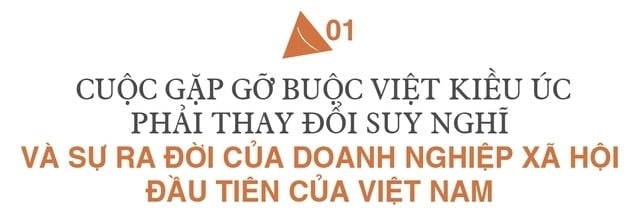
Some people will help women because they are the weaker sex and often face disadvantages in society. Others will focus on helping patients in difficult circumstances. So why did you choose to help children and street youth?
In 1996, meeting 4 children in Ho Chi Minh City changed my life. Vietnam at that time was still facing many difficulties. District 1 was not as modern as it is now. The park in front of the Ho Chi Minh City Opera House was full of street children. After taking the 4 children out to eat and talk, I realized many situations that I could not ignore.
So when I came back to Vietnam again, I set a very clear goal: to help street children. For 3 years, I went to meet disadvantaged children to give them money and teach them English. At that time, I thought I had done something wonderful.
But then I got a "trick" that made me rethink how to help them. During a meal with them in Hanoi to ask about their situation, they apologized for lying to me. The money I gave them to rent a house, they used for other things.
At that time, I was not angry with the children, but I felt that I had failed them. So I went one step further and gave them "fishing rods" instead of "fish". From there, the idea of opening a sandwich shop emerged. In June 1999, I opened KOTO in Quoc Tu Giam with the first 9 children.
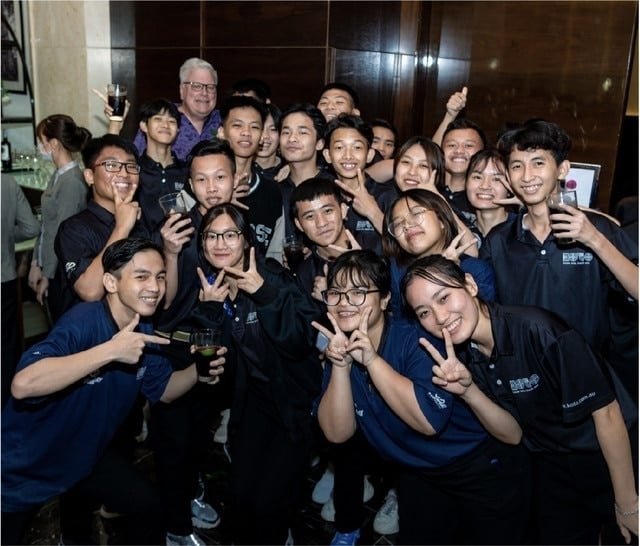
Was the idea of forming KOTO already there when you returned to Vietnam? If not, what led you to the idea of founding KOTO?
In my time, everything was very clear. Vietnam at that time only had NGOs and businesses, there was no concept of social enterprises. I went to register KOTO as an NGO but it was not possible, and I also could not register to establish a business because I did not have Vietnamese nationality.
In a dilemma, I started looking for partners. But when I presented to them the model of opening a restaurant, using profits to raise disadvantaged teenagers, they all waved their hands in refusal. Because the concept of social enterprise was not widely known, the partners were afraid of "getting a bad reputation" when sponsoring my business.
But in my opinion, to raise and train children, we need money. Secondly, they need an environment where they can both learn and practice. Therefore, a restaurant is the most practical place. However, if we send them to other restaurants, people often stereotype them as lazy and untrustworthy. So I decided to open my own restaurant. Step by step, I came to the decision to establish the social enterprise KOTO.
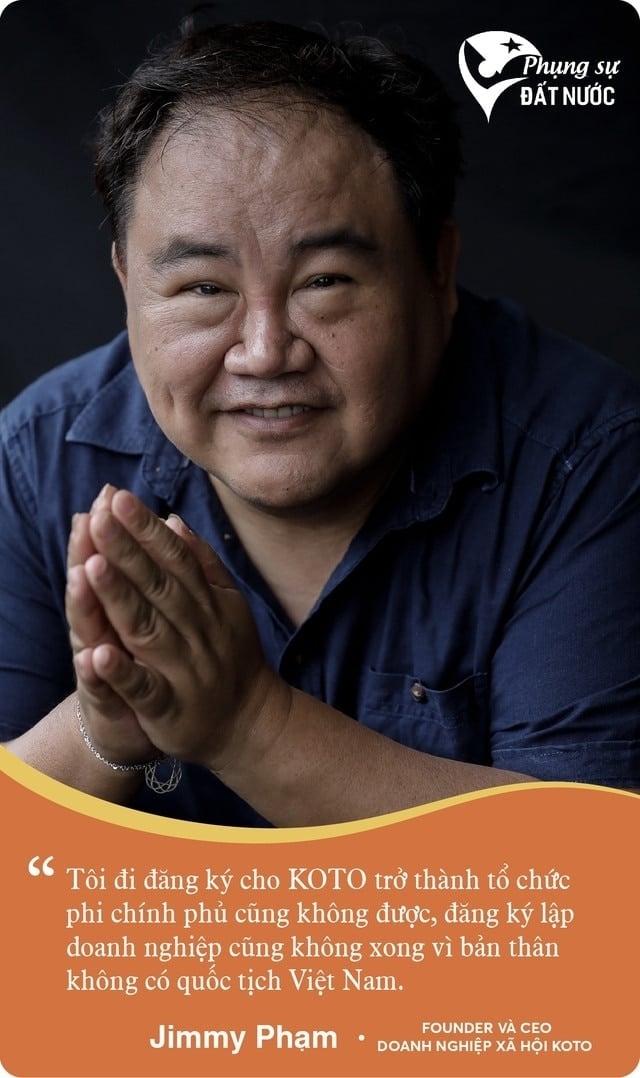
It is known that you are the founder and CEO of the first social enterprise in Vietnam called KOTO. So could you please explain what a social enterprise is?
Unlike commercial enterprises, social enterprises like KOTO will use profits from business activities to serve society, to train students and provide them with food and accommodation.
In comparison, commercial enterprises will use profits to invest in business activities, continue to make profits and develop the company. But social enterprises invest in people. We need to generate continuous profits to serve social activities.
Any business needs capital to establish, so how did you manage in the early days of establishing KOTO?
KOTO started as a sandwich shop. When I started, my savings from 4 years working in the tourism industry were enough to buy 2 houses in Long Bien. But I didn’t buy a house, I saved the money to take care of my siblings. I spent 10,000 USD to buy a bread maker, ran around to buy recipes and many other things.
After 1 year of opening the shop, I received sponsorship from 4 Embassies to open a training school in Thuy Khue, Hanoi. The British Embassy sponsored KOTO with a stove worth 21,000 USD, followed by the Embassy of Denmark, Switzerland and Australia.
Just like that, KOTO gradually grew and the restaurant became known to many tourists. After that, I opened a training center for the children so that I could take on more children.
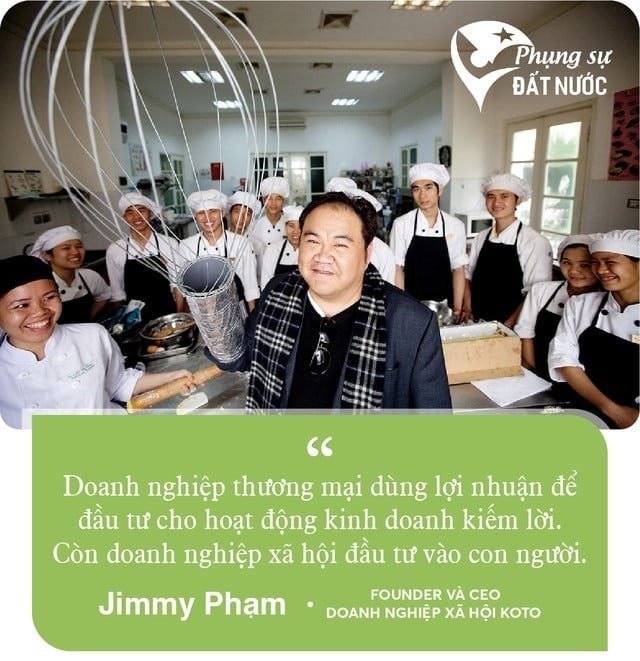
Usually, only those who have been in a specific situation can understand and sympathize with the situation of others. Is it because you have your own story that motivates you to help others?
My mother and siblings and I traveled through 6 different countries, from Singapore to Arabia. When I was 8 years old, my family moved to Australia. When I was young, I often thought that I was not someone who could bring much hope to my family. I felt that I was not good-looking, had poor academic performance, and lived in a poor family. The thought that I would only become a "coolie" in the future haunted me.
But my mother was the one who had the biggest impact on my life. She was an orphan but an amazing woman. Even though she couldn’t read or write, and didn’t have a husband to share the burden, she raised all six of us. I began to feel that I could grow up and become the person I always wanted to be.
Having lived through difficult circumstances, I can easily empathize with those who have nothing. I want to reach out to the most "complicated" children in society, find out why and help them change their thinking. It's like challenging myself and I love finding ways to overcome that challenge.

Is it difficult to reach them when the target audience is young people with special circumstances?
It is extremely difficult for strangers from all over the country to live together under a roof of less than 500 square meters. But the children at KOTO have never quarreled or fought. Because I have given them 3 rules to follow, including not hitting others, not using stimulants and not defaming KOTO, the place that takes care of them. Apart from those 3 things, if they do something wrong, they will be taught.
The children were always afraid of me because they could not predict the "punishments" I would give. For example, there was a child from the West who always opposed his foster mother. I punished him by making him sleep with her. A month later, he stopped arguing with his foster mother.
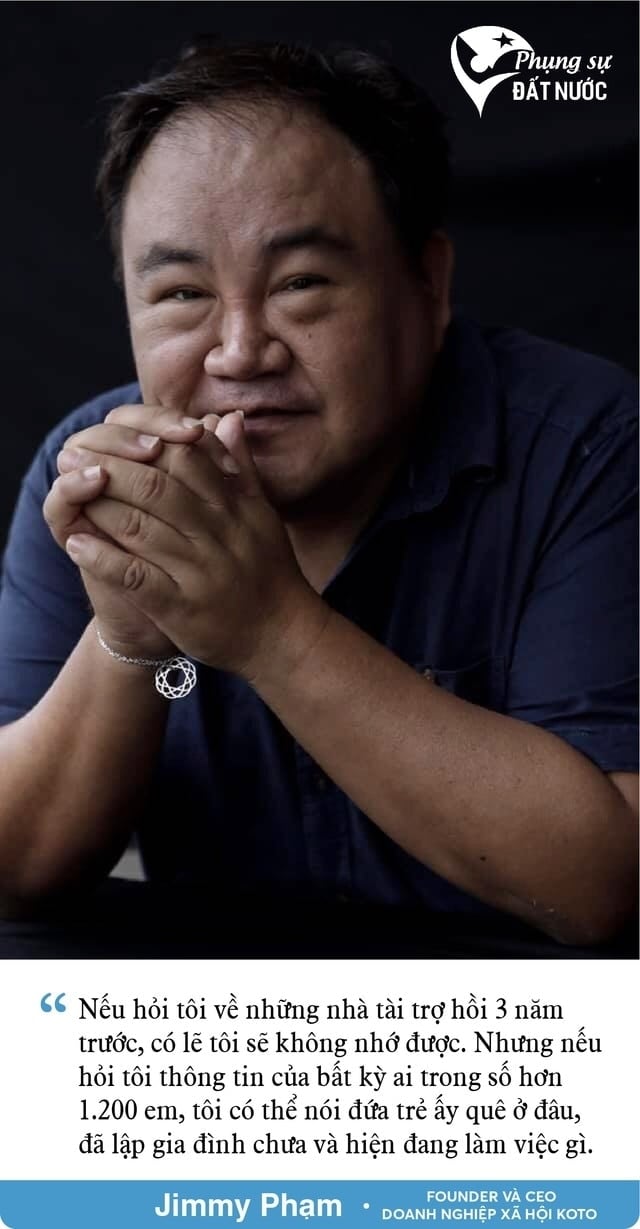
Surely each young person who comes to KOTO has their own stories and concerns? So is there any case that has impressed and touched you the most, sir?
If you ask me about the sponsors three years ago, I probably won’t remember. But if you ask me about any of the more than 1,200 children, I can tell you where they are from, whether they are married, and what they do for a living.
When I intervene in time and help one more child have a better life than before, that is a success. For example, a child who used to be homeless in Thuy Khue now has 2 houses in Hanoi. He and his wife are both former KOTO students and now have 3 children. Now he can give his children a better life than he had before.
I also determined from the beginning that KOTO was not established to teach a profession. Teaching a profession only accounts for 1/3 of KOTO's meaning. What is important is that KOTO wants to teach children to become kind, useful people, people who know where they are and what they need to do for society.
So in the past 6 years, I have stopped “giving fishing rods to go fishing” and focused on changing the “fishing profession”. We want to teach them core values so that they understand that they have a responsibility to build a sustainable society. Those children do not need to repay KOTO, they just need to contribute to the development of society.
There are a lot of street children, so what are KOTO's criteria for accepting them? And during that time, did any of them give up, sir?
KOTO has made quite a few changes to its admissions policies and procedures. Our admissions team has three criteria for admissions. The first criterion includes the level of difficulty, whether there is any violation of the law or violence. The second criterion is whether the child lives with the attitude that the whole world owes them and must help them. The third criterion is whether they have the spirit of Know One, Teach One. KOTO will also have a department to verify the circumstances of the children. That shows that the admissions process is quite strict, not everyone who applies will be accepted.
In addition, we give them a 1-month trial period to see if they can adapt and enjoy the environment at KOTO. We divide the training program into two phases with milestones of 1 year and 2 years.
Those who cannot keep up can stop after 1 year, receive a regular certificate and receive support from KOTO in finding a job. Those who can adapt and learn, KOTO will be with them until the end. This way the entire program will be free of charge. They will attend the graduation ceremony and receive an international diploma.
If you drop out before the end of 1 or 2 years, you will have to compensate KOTO for the expenses it has supported you with. This rule is designed to make you more responsible and also to reduce the number of dropouts. Because if you really love your family, you need to prove it.
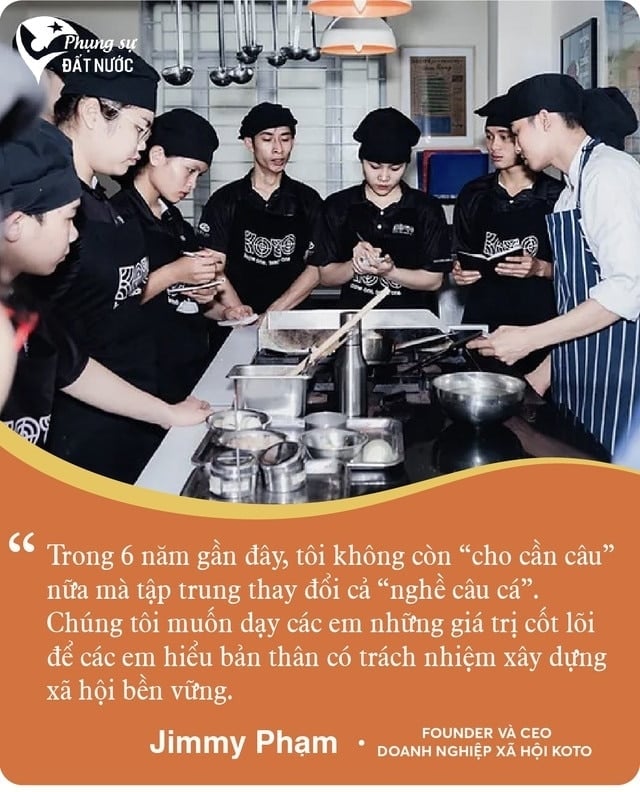
What will children be trained in at KOTO?
Upon arrival at KOTO, students will have an orientation week to observe and experience. After that, they will decide on their field of study including: bartending, serving and cooking. They will also practice at KOTO's own restaurants.
In addition to specialized training, students are equipped with many other skills such as basic information technology to serve their work. Second is learning English. Third is training in life skills because they are disadvantaged children.
100% of graduates will work in the F&B industry. Upon graduation, KOTO will have partners to create job opportunities for students. After many years, some may change careers, but that is only a minority.
We are currently renting a place to serve as a training center for the children. Therefore, what I am most concerned about and looking forward to is to be able to build a separate, larger, more spacious school to continue KOTO's mission.
At each graduation ceremony, seeing the students grow and change, how do you feel?
There is no graduation ceremony that I do not shed tears. When the first class graduated, as a big brother, I was really proud. I wanted to stand on a high mountain and shout out loud how proud I was.
At a recent graduation ceremony, what moved me the most was hearing an ethnic minority student say that her mother was very worried about leaving her alone in the city, especially since she had never been to Hanoi before. But after 2 years, she wanted to tell her mother: "I'm an adult and I'm about to go to Australia, Mom." She changed her mindset and knew that she was the master of her own destiny. For me, that moment cannot be bought with money.
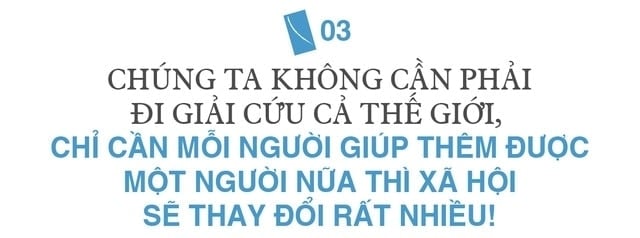
As a non-profit business, doing work to help society is a positive thing, but do you ever feel pressured or tired from this work?
I felt pressure almost every day. When I decided to follow this path, there were no books written about social enterprise or people to guide me through the difficulties. But that was the good thing. I threw myself into it, got beaten up a lot, and that helped me learn and gain experience.
Although many people doubt that KOTO is "false advertising" or that Jimmy Pham is just a "rich overseas Vietnamese", I let people come and see for themselves how KOTO operates and the achievements that KOTO has built. Then, they will naturally stop doubting me and my business.
After nearly 18 years of hard work, KOTO has finally been recognized as the first social enterprise in Vietnam. I was very moved when I heard this news. Although I do not work for recognition, this is indeed a great source of encouragement for me. There are more than 50,000 social enterprises operating today and that promises a brighter future.
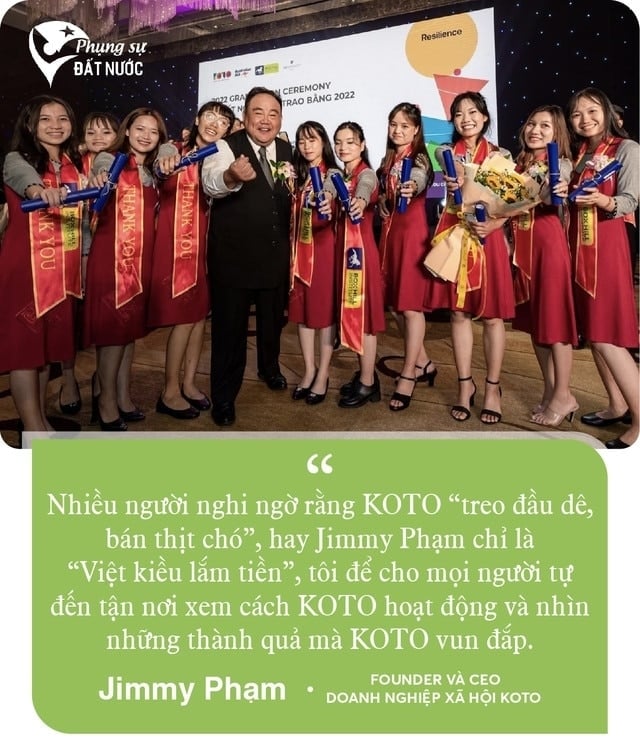
If you could choose again, would you want to live a more personal life, less attached to the community?
I just thought about it yesterday. Everyone wants to have their own happiness, such as buying a house, buying a car. However, my wish is like planting a tree, waiting until the tree bears fruit.
To me, the ideal of community service is like the story of two guys on the beach. The guy in front turned around and saw his friend picking up stranded starfish and throwing them back into the ocean. But there were thousands of stranded starfish on the beach. He told his friend that he couldn't save all the thousands. The guy picked up another starfish, threw it into the water, and said, "At least I can give the ones I help a chance at life."
So we don't need to save the whole world, if each person helps one more person, society will change a lot. Our country Vietnam will also be better.
I have planned that by 2026, which will be exactly 30 years since I returned to Vietnam, I will hand over KOTO to my successor. I have faith in my successor, who is also my former student. He is creative and has the ability to help KOTO develop further.
As a recipient of the 2011 Young Global Leader award from the World Economic Forum (WEF) and the Waislitz Global Citizen award, do you feel proud of the achievements you and your colleagues have made for society?
I don’t spend time looking at the awards I’ve received, because they’re not necessarily my own. In fact, it’s through these awards and big events that more people will know about KOTO and we’ll have more financial resources to invest in and care for the children.
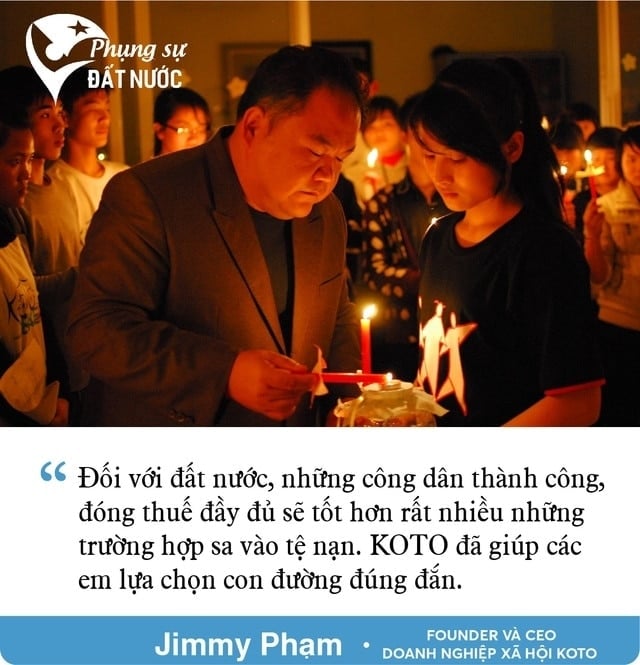
So, as the founder of Vietnam's first social enterprise, what do you think about your personal and KOTO's contributions to the overall development of the country?
I think what I have done in the past is not enough. KOTO should be spread many times more than it is now. KOTO graduates have been able to do many things. They have developed themselves on the path they have chosen, developing their career fields such as tourism, hotels, restaurants. Besides, some of them even founded an organization called Hope Box to support women who are victims of violence. They are the ones who are constantly contributing to the country.
For the country, successful citizens who pay taxes are much better than those who fall into vices. KOTO has helped them choose the right path, become active citizens and contribute to society.
Do you have any message or words of encouragement for those who are also serving the country in different areas of life?
Not only social entrepreneurs but also young people in general, we should stop thinking that we can only do useful work for society when we are full. Let's join hands to develop a civilized society. I hope that everyone can change their mindset to combine self-development and helping others, like the spirit of "Know One, Teach One". I firmly believe that when we do that, Vietnam will develop more and more.
Thank you very much!
Vietnamnet.vn



![[Photo] Close-up of Tang Long Bridge, Thu Duc City after repairing rutting](https://vphoto.vietnam.vn/thumb/1200x675/vietnam/resource/IMAGE/2025/5/19/086736d9d11f43198f5bd8d78df9bd41)
![[Photo] Panorama of the Opening Ceremony of the 43rd Nhan Dan Newspaper National Table Tennis Championship](https://vphoto.vietnam.vn/thumb/1200x675/vietnam/resource/IMAGE/2025/5/19/5e22950340b941309280448198bcf1d9)
![[Photo] General Secretary To Lam attends the conference to review 10 years of implementing Directive No. 05 of the Politburo and evaluate the results of implementing Regulation No. 09 of the Central Public Security Party Committee.](https://vphoto.vietnam.vn/thumb/1200x675/vietnam/resource/IMAGE/2025/5/19/2f44458c655a4403acd7929dbbfa5039)
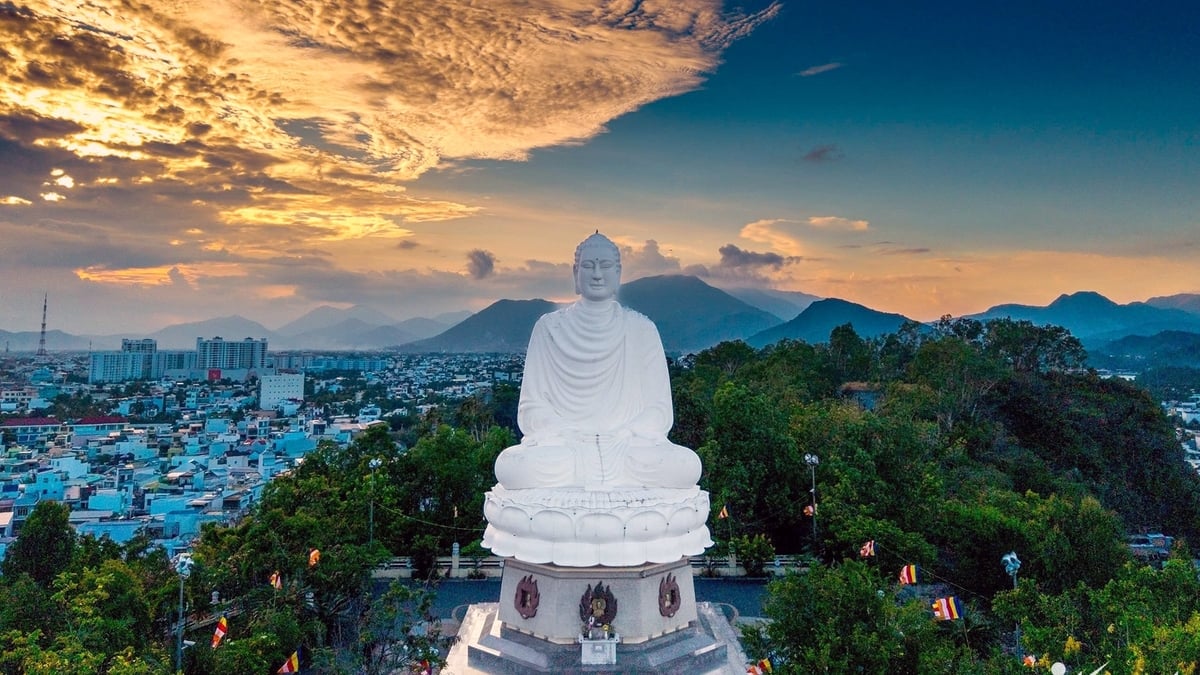
![[Photo] President Luong Cuong presents the 40-year Party membership badge to Chief of the Office of the President Le Khanh Hai](https://vphoto.vietnam.vn/thumb/1200x675/vietnam/resource/IMAGE/2025/5/19/a22bc55dd7bf4a2ab7e3958d32282c15)





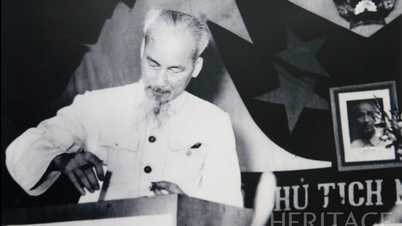



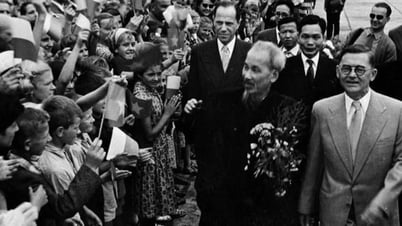





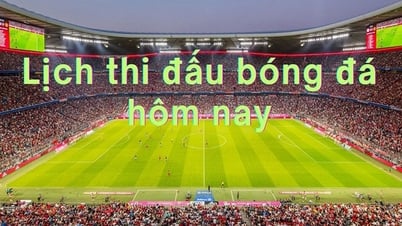




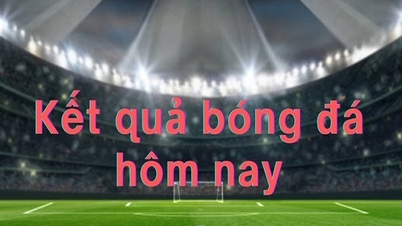





















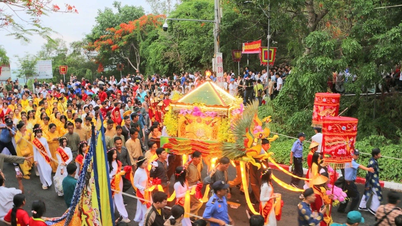























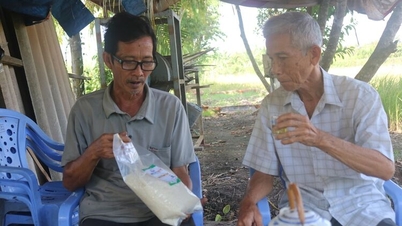

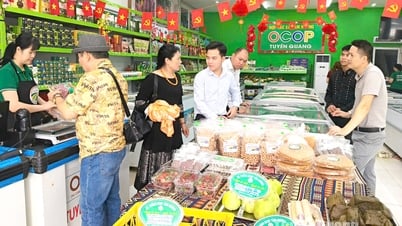






![[VIDEO] - Enhancing the value of Quang Nam OCOP products through trade connections](https://vphoto.vietnam.vn/thumb/402x226/vietnam/resource/IMAGE/2025/5/17/5be5b5fff1f14914986fad159097a677)



Comment (0)